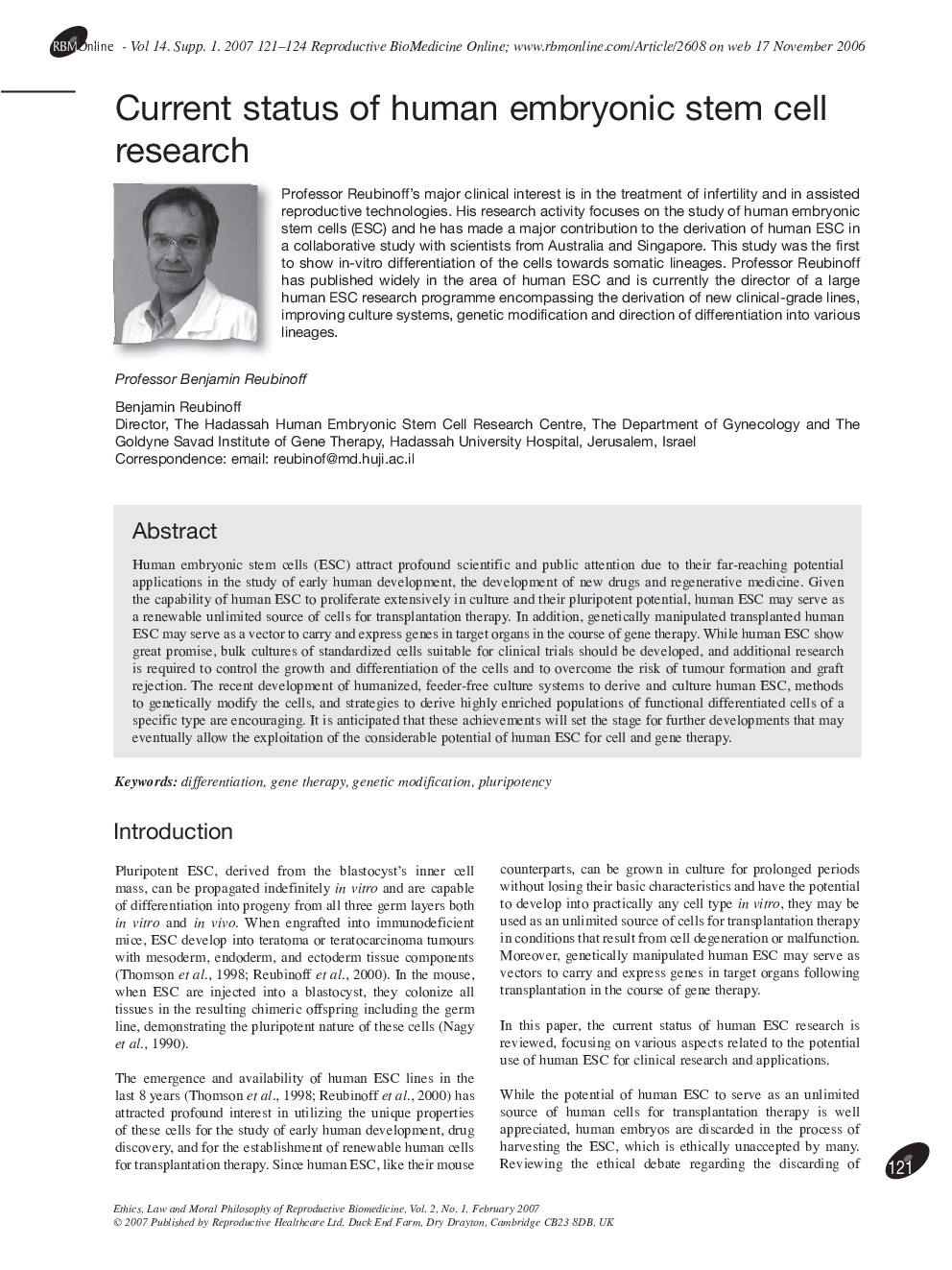| Article ID | Journal | Published Year | Pages | File Type |
|---|---|---|---|---|
| 3973498 | Reproductive BioMedicine Online | 2007 | 4 Pages |
Human embryonic stem cells (ESC) attract profound scientific and public attention due to their far-reaching potential applications in the study of early human development, the development of new drugs and regenerative medicine. Given the capability of human ESC to proliferate extensively in culture and their pluripotent potential, human ESC may serve as a renewable unlimited source of cells for transplantation therapy. In addition, genetically manipulated transplanted human ESC may serve as a vector to carry and express genes in target organs in the course of gene therapy. While human ESC show great promise, bulk cultures of standardized cells suitable for clinical trials should be developed, and additional research is required to control the growth and differentiation of the cells and to overcome the risk of tumour formation and graft rejection. The recent development of humanized, feeder-free culture systems to derive and culture human ESC, methods to genetically modify the cells, and strategies to derive highly enriched populations of functional differentiated cells of a specific type are encouraging. It is anticipated that these achievements will set the stage for further developments that may eventually allow the exploitation of the considerable potential of human ESC for cell and gene therapy.
